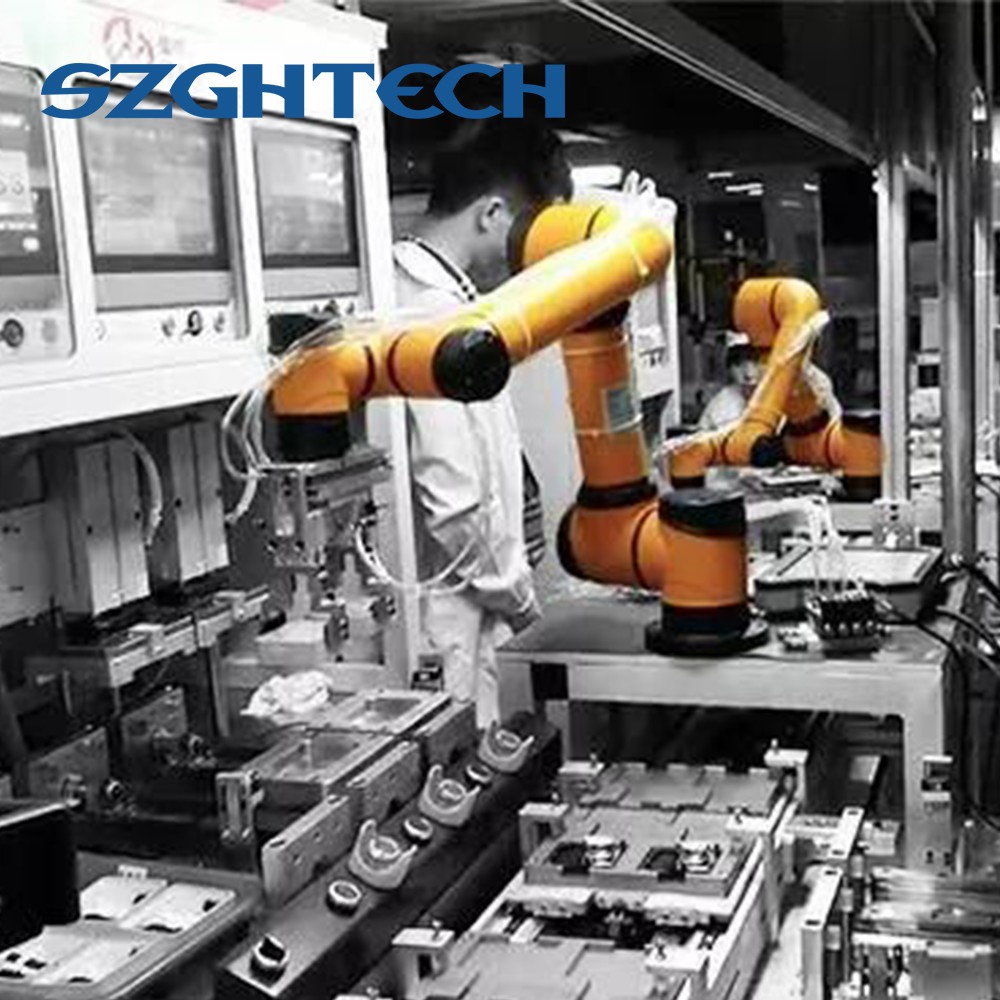Industrial robotic arms have been increasingly applied in the medical, nursing, and health fields due to their precision, flexibility, and automation capabilities. Some of the applications of industrial robotic arms in these fields include:
1) Surgery: Robotic surgical systems, such as the da Vinci Surgical System, have been widely used in minimally invasive surgeries, including gynecological, urological, gastrointestinal, and cardiothoracic surgeries. Robotic arms enable surgeons to perform precise and controlled movements with enhanced dexterity and visualization, resulting in reduced invasiveness, shorter hospital stays, and faster recovery times for patients.
2) Rehabilitation and assistive devices: Industrial robotic arms are used in the development of rehabilitation and assistive devices, such as exoskeletons and prosthetics. These devices can help patients with mobility impairments to regain or enhance their physical abilities, improve their quality of life, and promote recovery and rehabilitation.
3) Drug discovery and development: Robotic arms are used in pharmaceutical research and development for tasks such as high-throughput screening, sample preparation, and compound handling. Robotic arms can accurately handle small volumes of liquids, perform repetitive tasks, and work in a sterile environment, which can significantly accelerate drug discovery and development processes.
4) Laboratory automation: Robotic arms are used in laboratory automation for tasks such as sample handling, liquid dispensing, and pipetting. Robotic arms can work in a controlled environment, handle hazardous materials, and perform repetitive tasks with high precision and accuracy, improving the efficiency and reliability of laboratory workflows.
5) Telemedicine and telehealth: Robotic arms can be used in telemedicine and telehealth applications to remotely perform medical procedures, such as remote surgery, tele-consultation, and tele-rehabilitation. Robotic arms can be controlled by expert surgeons or healthcare professionals from remote locations, providing access to specialized medical care in underserved areas and improving patient outcomes.
6) Personal care and assistance: Robotic arms can be used in personal care and assistance for elderly or disabled individuals, performing tasks such as feeding, lifting, and transferring. Robotic arms can enhance the independence and quality of life for individuals with limited mobility or physical disabilities.
7) Mental health support: Robotic arms can be used in mental health support applications, such as therapy and rehabilitation for patients with neurological or psychiatric disorders. Robotic arms can assist in repetitive and controlled movements for rehabilitation, and provide support in therapeutic activities, promoting physical and mental well-being.

Overall, industrial robotic arms have a wide range of applications in the medical, nursing, and health fields, contributing to improved patient care, enhanced rehabilitation, increased efficiency, and advanced healthcare technologies.

